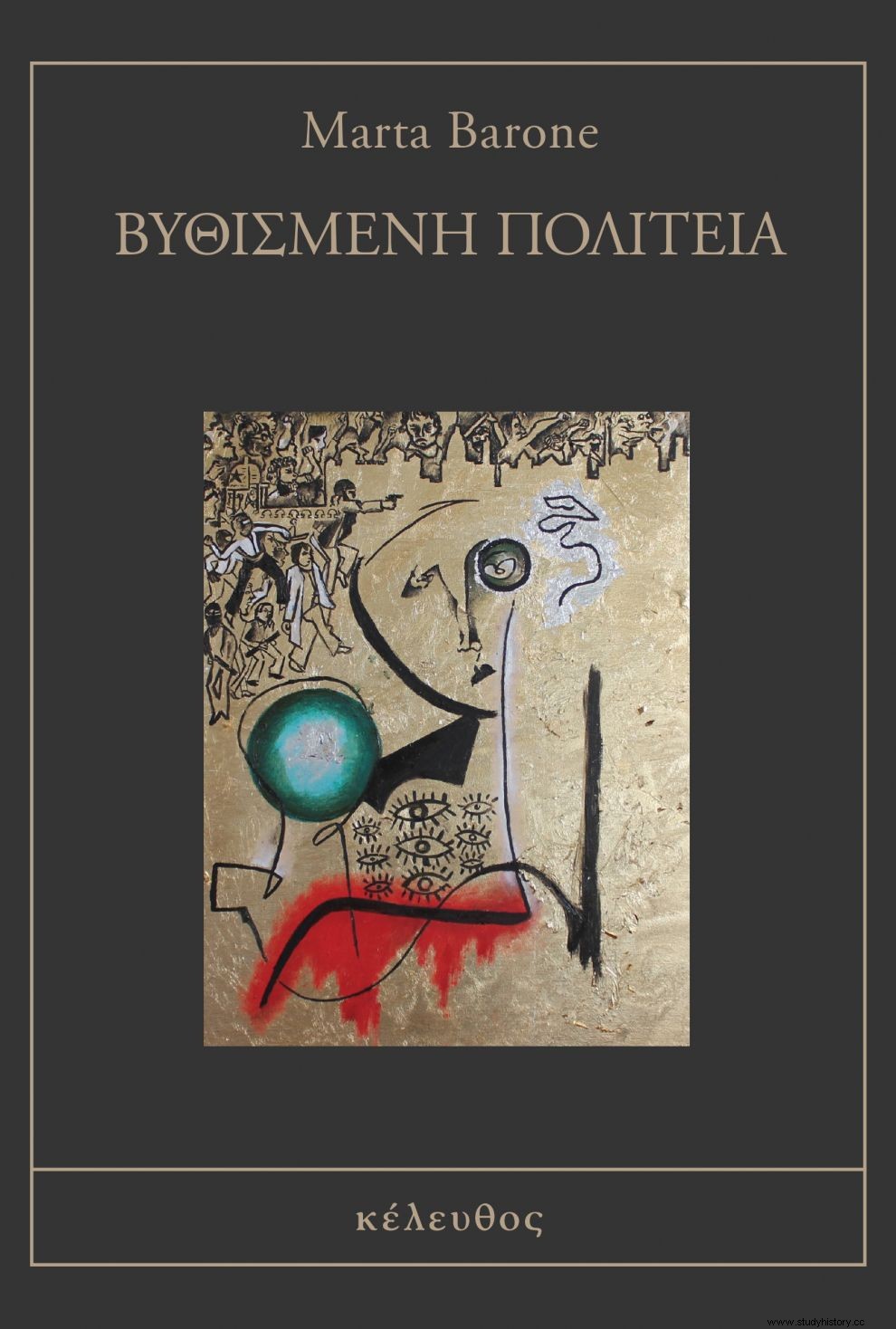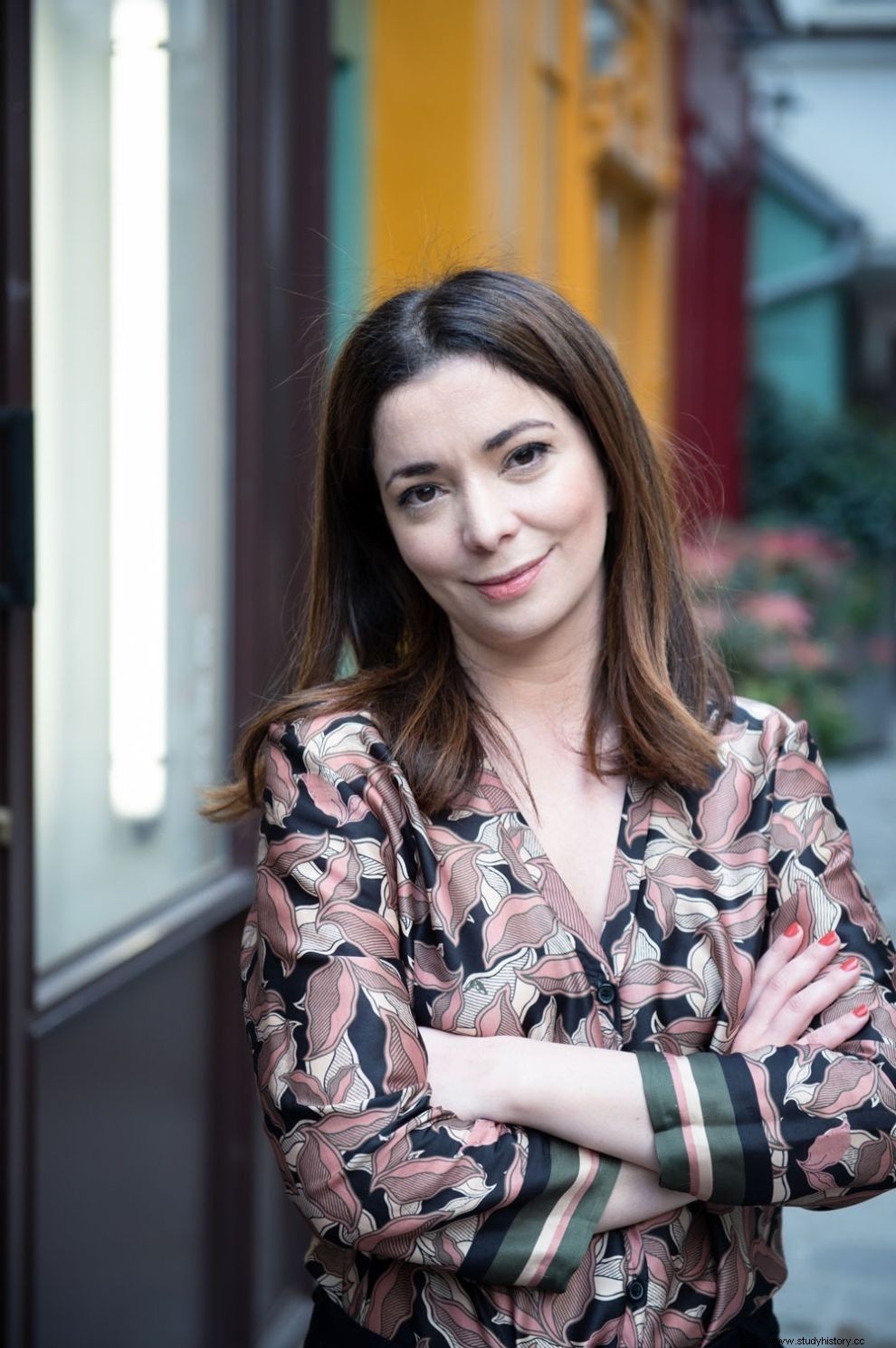A woman in her 30s decides to look for her father. The reconstruction of the past of her now dead father goes hand in hand with the turbulent decades of an entire society. The Italian one.
In "The Sunken State" Marta Barone sets up an amalgam of novel, memoir and history that goes through the socio-political ferments of Italy, from the student movement of '67-'68, to the labor demands, anti-fascism but also the armed struggle, with events that were stigmatized by far-right provocations, violent repression, controlled press. Of course, the pages are inspired by the so-called "anni di piombo", the "years of lead", the years of bullets and blood.
The central subject of the book is the life of the activist Leonardo Barone himself. In the book, the protagonist discovers that her now dead father is not who she thought he was. While he was alive he was involved, as a doctor, with a major terrorist organization of the extreme left (Prima Linea). In particular, the activist doctor Leonardo Barone was convicted in 1982 of "participation in an armed gang" as he treated a Prima Linea member who had been injured in a terrorist attack. He himself had uncharitably treated the poor in Milan and Northern Italy, and was a fighter for workers' rights in Turin.
L.V. he was finally acquitted on appeal six years later, but remained largely estranged from Marta. His representation was undertaken by the famous lawyer Bianca Guidetti Serra, who is today an almost mythical figure for left-wing circles in Turin.
Marta grew up with her mother, with Leonardo dying of cancer in 2011 when the author was 24. Since then, he began the reconstruction of a murky past. Questions include:
Was LB guilty?". And what were his motives? Was he an indiscriminate activist? And what were those who supported or were fascinated by the terrorists of that time thinking?
The author tries through the pages of her book to understand the conditions of the time and to investigate the causes that led so many to take up arms and find popular support, in not a few cases.

The author spoke to the Magazine about politics in Italy yesterday and of today, but also about her own life, which she sketched while trying to complete a work that created a sensation and is now being published in Greek by Keleuthos publications, translated by Konstantina Ger. Evangelou.
Regarding whether her text is a kind of autobiography, the author answers in the affirmative. "Of course it is. The main person, besides my father, is me:or rather, an earlier version of me."
But why did he choose the form of fiction and not biography? "Because I was interested in finding a particular form that would not make the book a simple accumulation of chronological events or a recall, but also a narrative inquiry into time, into memory, into the gaps of memory, into the things that interested me more than literary ", reports Marta Barone in the Magazine.
When ideology was turned into action
Regarding the Marxist-Leninist party of Italy, Servire il popolo, with whom her father had relations, the author tells us that his offer of local solidarity has not appeared again in the subsequent history of her country on such a partisan level. Something she found not only attractive, but made her look deeper into the action of these organizations.
"Servire il popolo" was a small party, with very few members, Marxist-Leninist, it was not the Italian Communist Party (PCI), which on the contrary had a huge appeal. More than attraction , I was interested in what they were doing in the cities supporting the poor and the socially weak, as other small communist organizations were doing. That is, when ideology was turned into action and really had an immediate utility. In Italy there has been nothing like it since, except only at the level of religious volunteerism".
Regarding her father's political ideas, and how they influenced her own political views, the author tells us: "We had similar ideas, but we often disagreed. Now that I know more about his experiences before my birth, I can say that I understand more, through my father, about those times although, unfortunately, only through the accounts of others".
"Before I made the discoveries I recount in my book Sunken State I knew virtually nothing about his past, so I didn't grow up feeling the weight of it. Now that so much time has passed, I believe that it was very important that I tried to tell his story, to keep his traces alive," adds Barone.
I was more interested in asking why they did it and what they believed, rather than judging
All her research, as she tells us, brought her in front of personal upheavals, but also cognitive conquests for the time when her father was active.
"I thought it was important to study and get to know better what happened before the tragic turn of history, which is the only thing left, more or less, in the collective memory and Italian politics. Some historians they've been doing it for years, but sometimes it seems, at least in general terms, that too little time has passed for us to put some facts into perspective and try to understand all sides of them.
I limited myself to trying to narrate a place, to attempt to restore in a narrative way, filtered through the lens of personal discovery and my mental distance from that world. Of course, I often made mistakes and changed my mind about many things as I got to know them, and as I came to understand the way in which these individuals lived driven by an ideal of justice and social equality that ran through their entire being. I was more interested in asking why they did it and what they believed, rather than judging".
You have stated that the Far Left has created positive aspects that we enjoy in our democracies today. What are the current stakes?
"I believe in conquests like divorce laws and other things that changed the social fabric of some countries in a positive way. The movements, despite their problems and differences, brought about some important changes (eg. in education, psychiatric structures, universities and women's lives).
In other cases, such as e.g. in the struggle for the right to residence, they had, on the contrary, a sad end. Urbanization of the big centers and ever-increasing rents, (largely unaffordable at existing wages), seem to no longer interest anyone, from a political point of view. On the contrary, things are constantly getting worse".

In the question, "how left is Italy today", Barone does not respond positively.
"Very little. As in other countries, populism is the result of multiple factors. The problem is that to counter populism there must be a more convincing counter-proposition instead. It's a very sad state of affairs and with no visible way out".
In your opinion, what should Europe change if it is to finally become an organization of justice and equality?
"It's very difficult to answer at this point in time. Things literally change from week to week. I'm limited to reading the newspaper articles and trying to understand what's going on, just like the rest of the world. At the moment I cannot express an opinion:Besides, I am not an expert on geopolitical issues, I tell stories".
Is there a book that changed the course of your life? And if so, why?
"Yes, many of these books I've read have influenced The Sunken State in one way or another. Nabokov's books are probably the most important, for the vivid beauty of the language and for their subject matter (nostalgia, memory, the passage of time)".
The premise of the book
The boy runs in the winter night, in the rain, barefoot, covered in blood, not his own. We'll call it LB to get closer to the years and events leading up to that night.
We are in Turin in the 70s. We are guided by the voice of a young woman, passionate about literature and this novel is the memory and the chronicle of her confrontation with the disappearance of her father , with what remained of her happy childhood, with the belated discovery of the court case that had him as the protagonist.
Who was this stranger, LB, the young man always on the side of the losers, the tireless doctor who always fought to save someone, who was sentenced to prison for participating in an extremist left organization? And why did he never want to talk about that time? Testimonies, files and files, memories, revelations slowly compose the portrait of a complicated and contradictory man who lived in a complicated and contradictory era.
The author
Marta Barone was born in Turin in 1987. She studied Comparative Literature at the University of Turin. With the book Submerged State, he was a finalist in the Premio Strega, while he was awarded the Premio Letterario razionale di Elio Vittorini.
The "Sunken State" it was shortlisted for the Premio Strega 2020 prize awarded to the best novel of the year in Italy.
